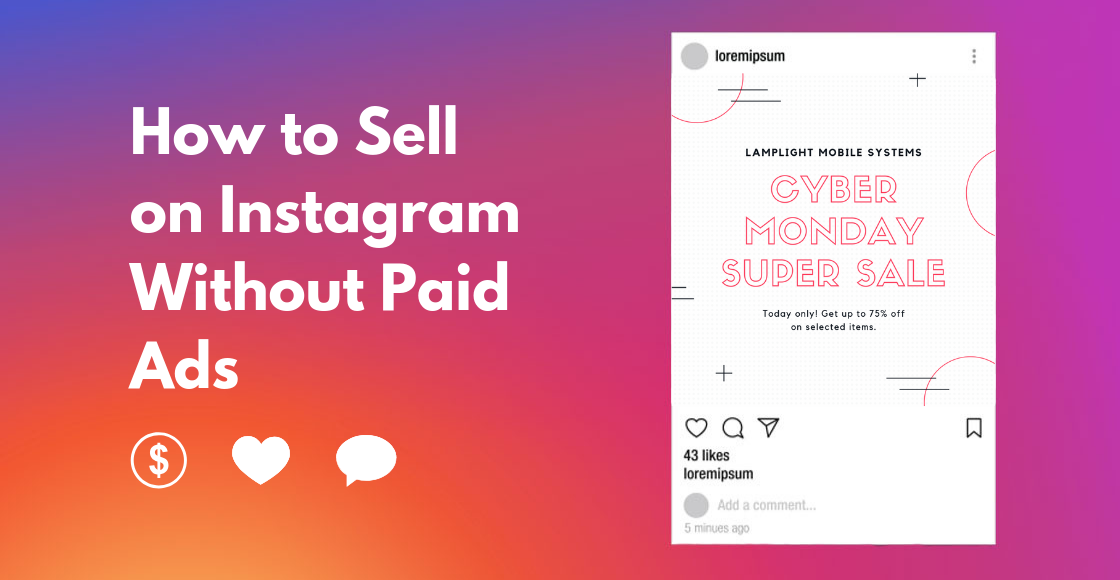Everybody loves to talk about their wins. The big sales, the fat profits, the moment your hustle finally pays off. But you know what people don’t talk about enough? The flops. The mistakes. The moments that make you want to switch off your phone, crawl under your bed, and just sleep until the embarrassment fades. Those are the real stories that shape you as an entrepreneur, especially in Nigeria where business is a battlefield. This is the story of my worst business mistake, and trust me, it was a proper disaster. I’m not sharing this just to gist, but to help you dodge the same trap I fell into. Whether you’re a newbie starting your hustle or a seasoned entrepreneur knee-deep in the game, this story could save you money, stress, and a bruised ego. So grab a bottle of malt, zobo, or even pure water, no judgment, and let me take you back to when I learned my lesson the hard way.
The Excitement of My First “Big” Idea
It all started like most Nigerian businesses do: with vibes, ambition, and a small budget. I was a university graduate, hustling to make ends meet in Lagos, when I stumbled across a supplier on WhatsApp selling “authentic” oil-based perfumes in bulk. You know those long-lasting perfumes that smell like high-end designer brands like Creed or Dior? The kind that make people ask, “Oga, which perfume you dey use?” That was the product, and I was hooked.
I did my quick calculations, as any sharp Nigerian would. Buy each bottle for ₦1,000, resell for ₦2,500 to ₦3,000. Clean profit, no wahala. The supplier’s WhatsApp Status was popping with sleek photos of shiny perfume bottles, fancy packaging, and even customer reviews. They had voice notes saying things like, “We no dey do fake o, boss. Na quality we dey run.” I was sold. The vibes were immaculate. I started dreaming of stacks of cash, repeat orders, and customers begging for more. I even imagined expanding into other products, maybe building my own brand someday.
So, without much hesitation, I gathered my savings, ₦145,000, and made the transfer in one click. No questions, no doubts, just pure excitement. I was ready to become the next big perfume plug in my area.
Where the Wahala Started
The first red flag popped up almost immediately. After I sent the money, the supplier’s replies slowed down. One-word responses. “Okay.” “Soon.” Then the classic Nigerian excuses: “Network dey bad,” “NEPA don carry light.” I didn’t panic, though. I told myself, “This is Nigeria. Things take time.” I was patient, maybe too patient.
Three days later, I got a dispatch notification with a tracking number. My excitement came back full force. I started posting teasers on my WhatsApp Status, hyping the perfumes as “long-lasting, designer-inspired, and affordable.” A few friends and contacts placed pre-orders, and I was already counting my profits.
Then the package arrived.
Omo, my heart sank faster than a stone in water. I opened the box, and it was a complete disaster. The perfumes looked nothing like the glossy photos I’d seen. The bottles were cheap plastic, some already leaking. The smell? Like diluted air freshener mixed with kerosene. The packaging was a soggy carton, with labels peeling off like wet tissue. I stood there, staring at the mess, too shocked to even curse. You know that silence when you’re just processing how badly you’ve been played? That was me.
I messaged the supplier. Blue ticks, no reply. I called. He picked up once, said, “Boss, relax, we go sort am. You go get refund.” Then, nothing. Radio silence. That was the last I heard from him. My ₦145,000, gone like smoke.
The Emotional Damage
Losing the money was painful, but the emotional damage hit harder. I had already hyped the perfumes to my network. Friends, colleagues, even random WhatsApp contacts were waiting for their orders. Some had paid in advance, trusting me to deliver. How do you tell people you got scammed in this economy? The shame was real. I felt like I’d let everyone down, including myself.
I had to dig into my personal savings to refund the pre-orders, which left me broke. Some customers were understanding, but others were furious. A few blocked me outright. The worst part? My reputation took a hit. People who once saw me as a reliable guy now looked at me with side-eye, like I was the one running a scam. That hurt more than the money.
That’s when it hit me: in business, your reputation is your real capital. You can lose money and recover, but lose trust, and you’re fighting an uphill battle. Nigerians don’t forgive easily when it comes to their hard-earned cash.
The Mistake I Made
Looking back, the signs were screaming at me, but I was too excited to listen. Here’s a breakdown of where I went wrong, so you don’t repeat my mistakes:
- No Proper Verification: I trusted a random WhatsApp supplier without doing my homework. No website, no business page, no verified customer reviews, just a few photos and voice notes. In Nigeria, where scams are as common as traffic, that’s a rookie mistake. Blind trust is a luxury you can’t afford.
- No Sample Test: I went all-in with ₦145,000 without ordering a single sample. A ₦5,000 or ₦10,000 test order would have shown me the supplier’s true colors. Instead, I let greed and FOMO (fear of missing out) push me to dive in headfirst.
- Too Much Assumption: I assumed the products would match the pictures because they looked clean. I assumed the supplier was legit because he sounded confident. I assumed selling perfumes would be easy because I saw others doing it. Assumptions are expensive, especially in Nigeria’s unpredictable market.
- Poor Customer Prep: I hyped the perfumes on my Status before even seeing the product myself. I was selling dreams, not reality. When the product flopped, my reputation crashed with it. Never promise what you haven’t verified.
- Ignoring Red Flags: The slow replies, vague excuses, and lack of transparency were all warning signs. I brushed them off as “normal” Nigerian delays, but my gut was telling me something was off. Always listen to that small voice.
The Aftermath: Picking Up the Pieces
The weeks after the scam were rough. I felt like quitting business altogether. I kept replaying the moment I sent that ₦145,000, wondering how I could be so naive. I avoided my WhatsApp for days because I couldn’t face the messages asking, “Where my perfume dey?” It was a full-blown pity party, complete with sleepless nights and zero motivation.
But one day, I had a moment of clarity. I told myself, “If you can lose ₦145,000 and still be alive, you’re not a small boy. You’re in the game now. Dust yourself and move.” That mindset shift was everything.
I started rebuilding, but this time, I moved smarter. I began with small orders, testing suppliers with tiny purchases before committing. I researched markets like Lagos Island and Aba for reliable vendors. I joined WhatsApp groups with other online sellers to learn how they source products and avoid scams. I even took free online courses on branding, customer service, and logistics to understand the backend of business, not just the frontend of selling.
Slowly, my confidence returned. I started selling again, focusing on small, verified products like phone accessories and skincare. The profits weren’t huge, but they were steady, and more importantly, my customers were happy.
What the Mistake Taught Me
That perfume disaster was painful, but it was also the best teacher I ever had. No YouTube video or business coach could have drilled these lessons into me the way that ₦145,000 loss did. Here are the biggest takeaways that changed how I do business:
- Excitement Isn’t a Business Strategy: It’s great to dream big, but excitement alone won’t pay your bills. Business is about calculated risks, not vibes. Always double-check every move, no matter how promising it looks.
- Test Before You Invest: Never go all-in on an untested product or supplier. Start small, even if it’s just ₦5,000. A small loss is better than a big one. Even if the supplier says, “Promo ends today,” take your time to test.
- Your Reputation Is Everything: In Nigeria, trust is hard to earn and easy to lose. One bad move can ruin your name for months. Protect your reputation like it’s your bank account, because it’s worth more than your stock.
- Learn the Backend, Not Just the Frontend: Selling isn’t just about posting pretty pictures on WhatsApp. It’s about finding reliable suppliers, managing logistics, handling refunds, and keeping customers happy. Master the boring stuff, and the profits will follow.
- Build Trust Intentionally: Nigerians are skeptical, and for good reason. Always underpromise and overdeliver. Share proof of quality, like photos or testimonials, and be transparent about delays or issues. Trust takes time, but it’s your biggest asset.
- Failure Is a Teacher, Not a Death Sentence: Mistakes don’t mean you’re a failure. They’re part of the hustle. Every successful Nigerian entrepreneur has a story of loss. What matters is learning from it and coming back stronger.
Fast Forward to Today
Today, I run a few small online ventures, nothing too flashy, but they’re consistent. I sell phone accessories, skincare products, and occasionally perfumes (yes, I went back, but with verified suppliers only). My customers trust me because I deliver quality and communicate clearly. I still get tempted by shiny opportunities, like a “hot deal” on WhatsApp, but now I pause, research, and test before jumping in. That perfume scam humbled me, gave me thick skin, and taught me street sense that no classroom could offer.
When I hear new entrepreneurs say, “This supplier said it’s a sure deal,” or “I saw it on WhatsApp, it’s legit,” I just smile. I’ve been there. I know the excitement, the rush, and the crash that follows if you don’t do your homework. My advice? Slow down, verify, and protect your name.
Moving Forward
If you’re reading this and you’ve made a business mistake, big or small, don’t beat yourself up. You’re not alone. Every entrepreneur in Nigeria has a story of a deal gone wrong, a supplier who vanished, or a product that flopped. What separates the winners from the quitters is what you do next. Don’t let shame or fear stop you from trying again. Use your mistake as fuel to get smarter.
Here’s how to move forward:
- Start Small: Test new products or suppliers with small orders to minimize risk.
- Do Your Homework: Research suppliers thoroughly. Check for reviews, ask for samples, and verify their business details.
- Build Trust: Focus on delivering quality and great customer service. Happy customers will spread the word for you.
- Learn Continuously: Join online seller groups, watch free YouTube tutorials, or take affordable courses to understand sourcing, branding, and logistics.
- Protect Your Name: Always prioritize your reputation. Be honest with customers, even when things go wrong, and they’ll respect you for it.
Business in Nigeria is tough, but it’s also full of opportunities. Don’t let one mistake make you give up. Take your time, move smart, and keep pushing. Your next win is closer than you think.
Summarized Key Points
- My Mistake: Trusted an unverified WhatsApp supplier, sent ₦145,000 for bulk perfumes, and got scammed with low-quality products.
- Red Flags Ignored: No supplier verification, no sample test, hyped the product too early, and ignored delayed responses.
- Consequences: Lost ₦145,000, refunded pre-orders from personal savings, and damaged my reputation with customers.
- Lessons Learned:
- Test products and suppliers with small orders first.
- Protect your reputation above all else.
- Learn backend operations like sourcing and logistics.
- Avoid hype-driven decisions and focus on calculated risks.
- Failure is a lesson, not the end of your hustle.
- Outcome: Restarted with smaller, verified orders, learned proper business practices, and built a steady online venture.
Your biggest business lesson might come from a failure, not a success. Embrace it, learn from it, and keep hustling. That’s the Nigerian way.



